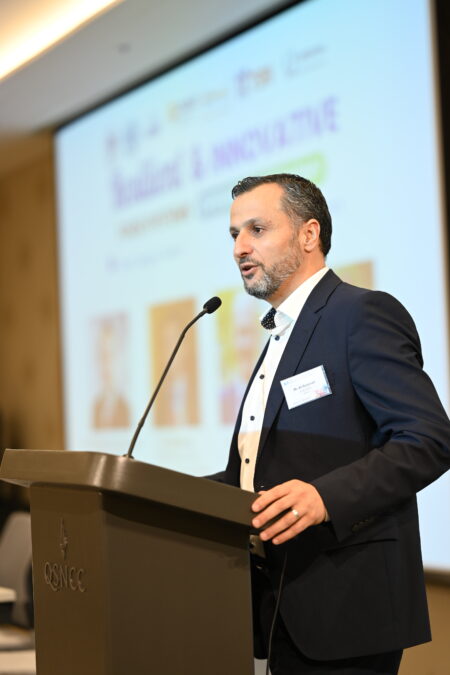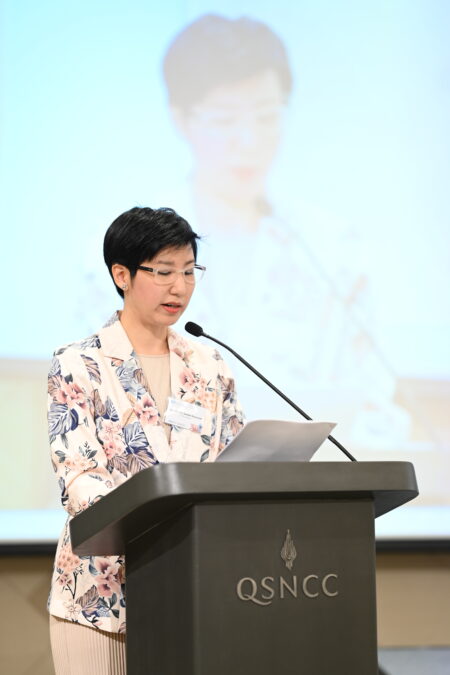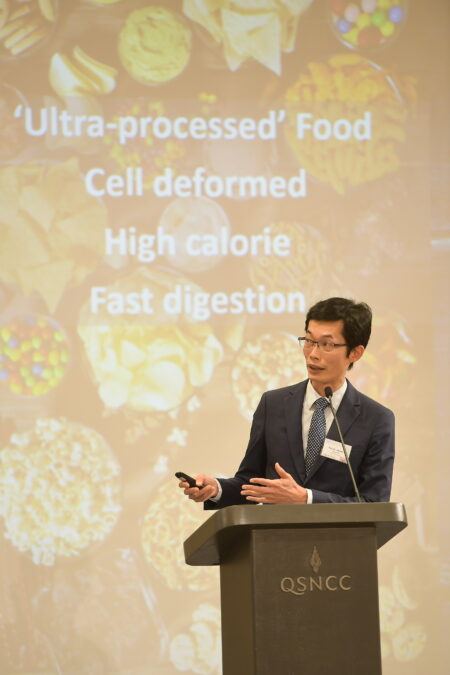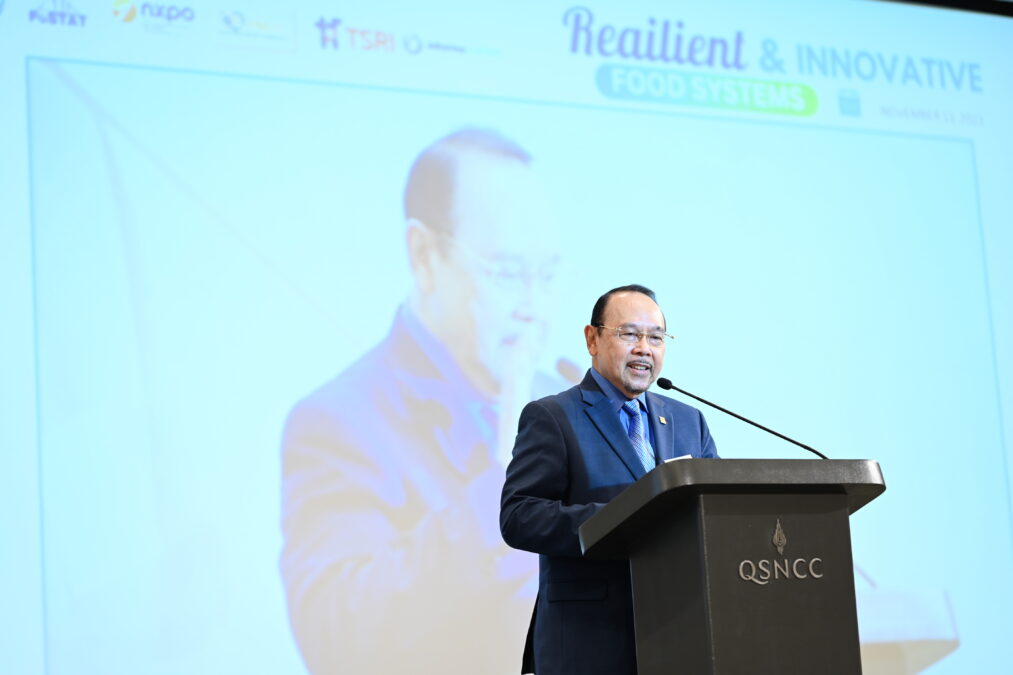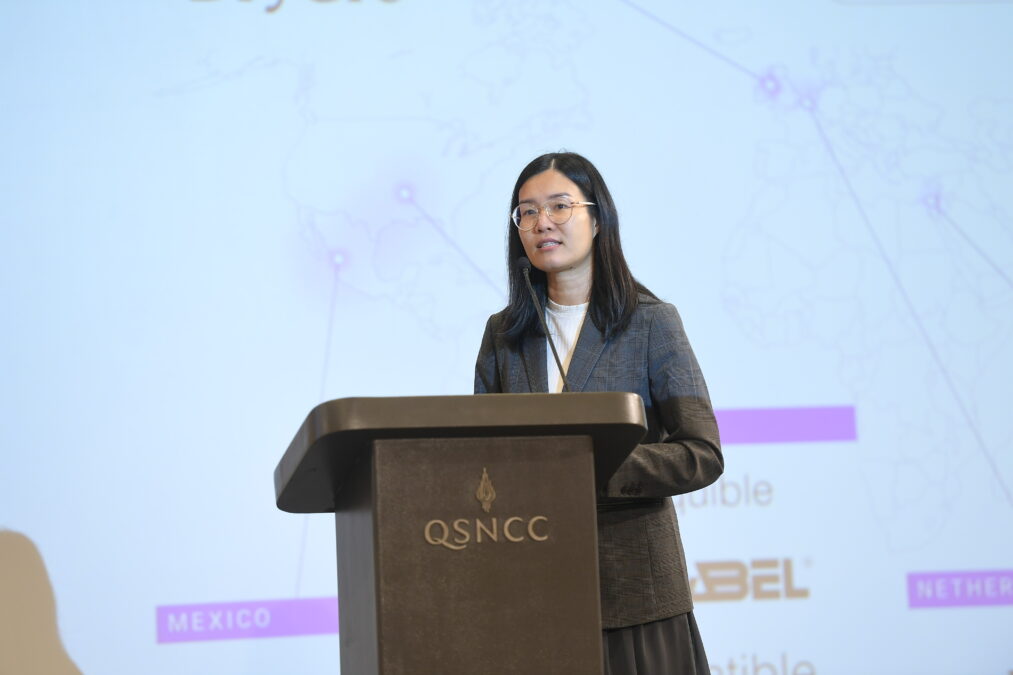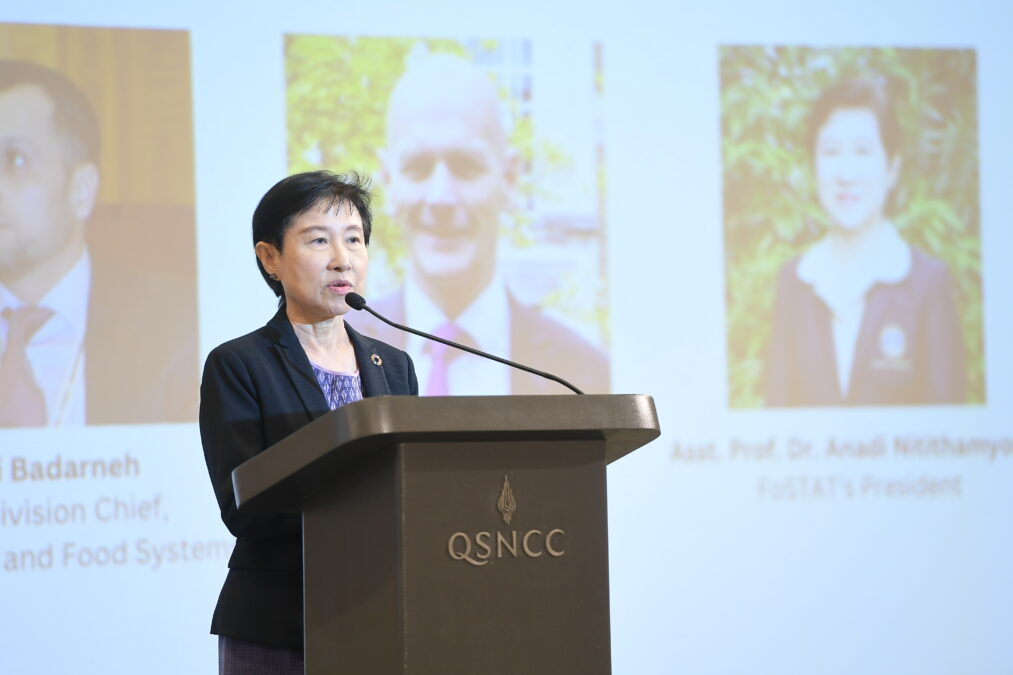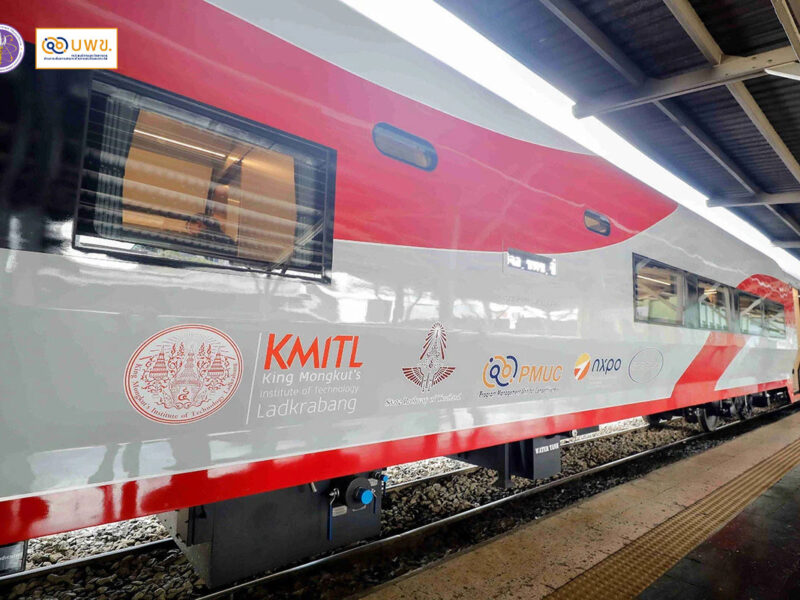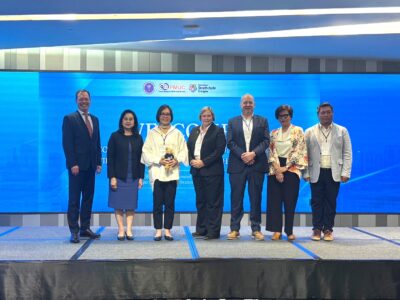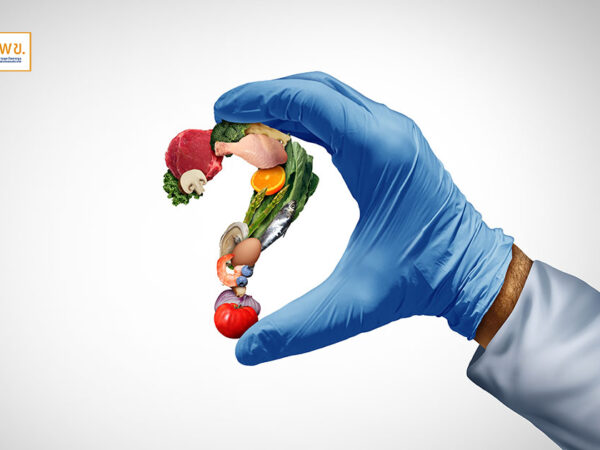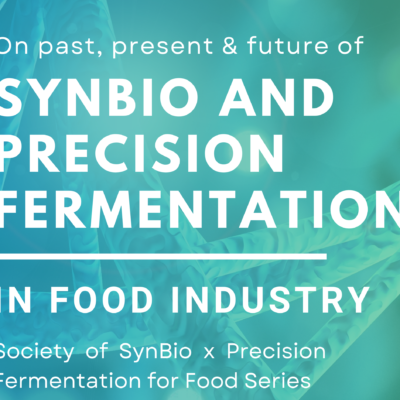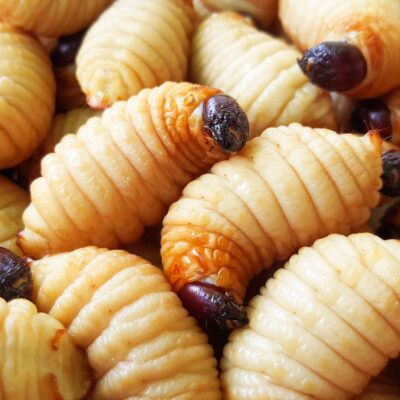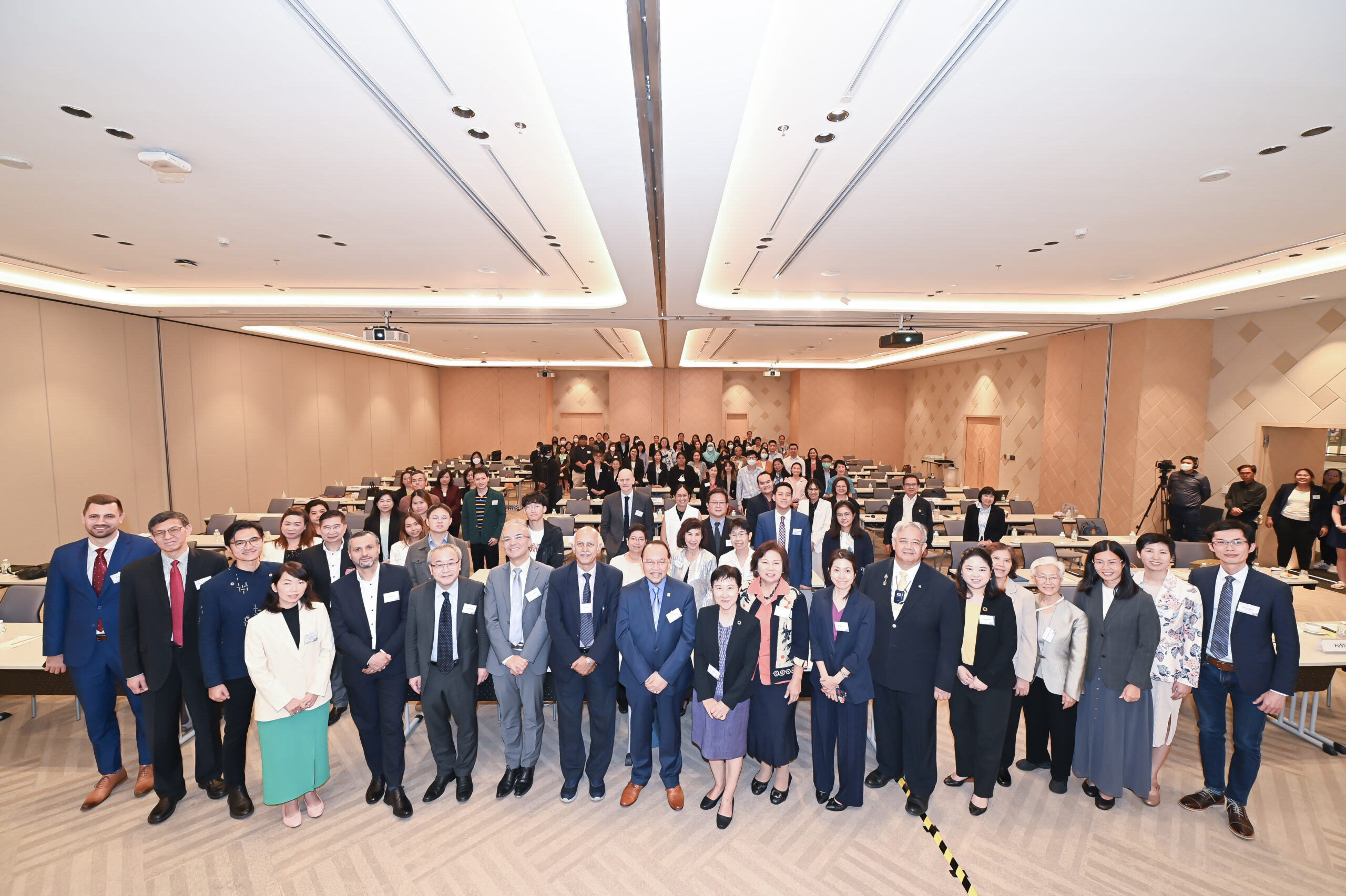
The Program Management Unit for Competitiveness (PMUC), under the Ministry of Higher Education, Science, Research and Innovation (MHESI), in collaboration with the Food Science and Technology Association of Thailand (FoSTAT), the International Union of Food Science & Technology (IUFoST), and the United Nations Industrial Development Organization (UNIDO), organized a seminar titled “Resilient and Innovative Food Systems” on November 13th, 2023, at the Queen Sirikit National Convention Center, Bangkok.
The event was the UN Food Systems Summits (UNFSS), which invited regulatory agencies, thought leaders, technology researchers, food industry leaders such as IUFoST, UNIDO, the Food Security and Food Systems Unit, the Division of Agri-Business and Infrastructure Development, the World Health Organization (WHO), the Codex Alimentarius Commission (CAC), and the FAO Regional Office for Asia and the Pacific (RAP). The event was co-organized by the Office of National Higher Education Science Research and Innovation Policy Council (NXPO), Thailand Science Research and Innovation (TSRI), and Informa Market (Thailand). Its purpose was to drive and strengthen cooperation between public agencies and academic organizations in supporting food systems (Food Systems) in line with the objectives of the UN Food Systems Summits. The focus was on finding solutions and outcomes to strengthen food systems, requiring the integration of food science and technology knowledge with innovation through activities such as discussions, exchange of perspectives, and policy summaries from leaders and experts in public, private, and industrial sectors. This serves as a guideline for improving Thailand’s food systems and developing mechanisms to align Thailand’s food systems with international standards.
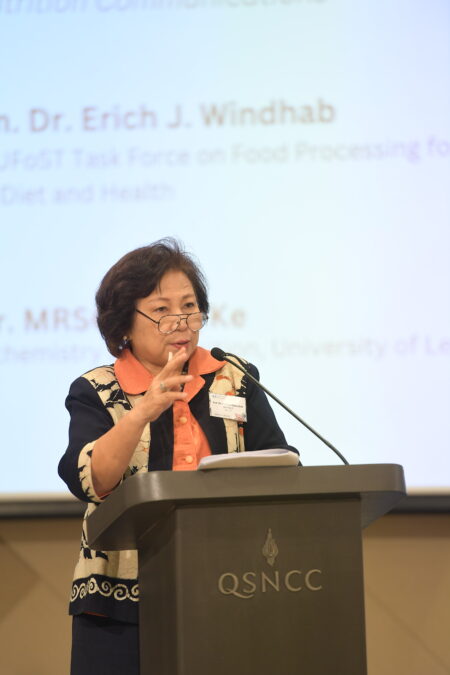
Professor Pavinee Chinachote, Ph.D., member of the Agriculture and Food Subcommittee, PMUC, in her capacity as an advisor to the FoSTAT Association and a member of the IUFoST Committee, as well as the head of the Food Innovation and Regulation Network (FIRN) project, stated that: “Our world is entering a crisis, both in terms of population and food. We do not have enough protein and nutrients. At the same time, there are natural disasters resulting from global warming and ongoing wars, which lead to food shortages. We need a resilient food system that is flexible enough to find solutions, such as a robust food supply chain and cultivation or farming methods that do not rely on weather conditions, to prevent food shortages during crises. Therefore, resilience involves managing so that we can live with risk. We need new research that integrates innovation to develop food that meets standards, is safe, healthy, and can adapt to changing situations.”
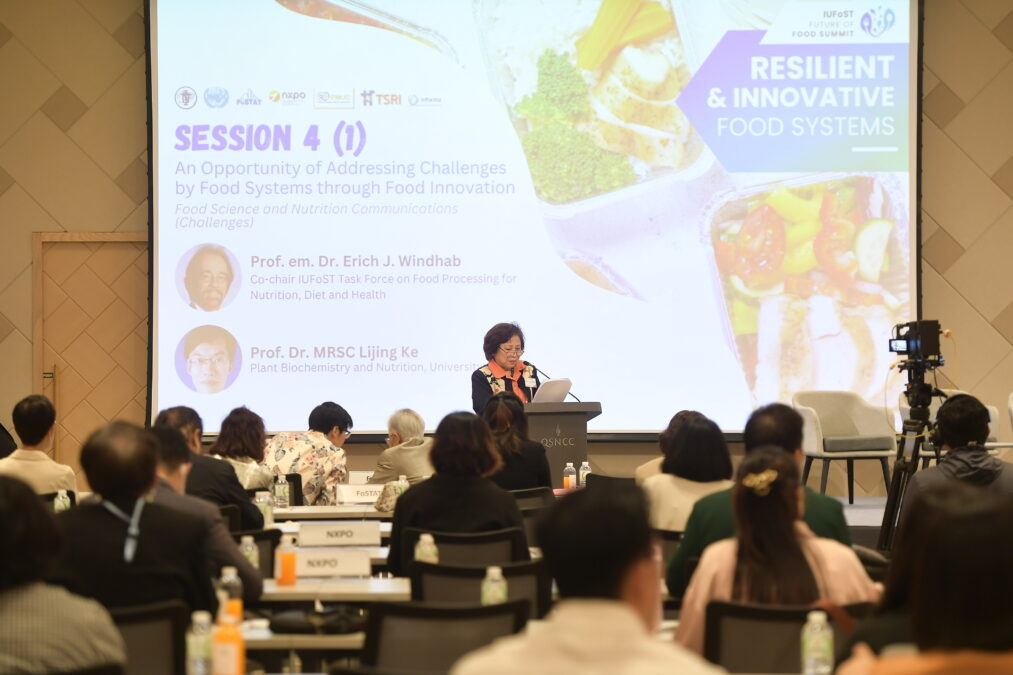
Professor Pavinee further stated, “The pinnacle of food innovation at the moment is cultured meat or the meat of the future, which is also known as clean meat, synthetic meat, or in vitro meat. This type of meat is created by culturing animal stem cells outside the animal’s body using genetic engineering techniques in a laboratory. This innovation aims to meet the increasing demand for meat consumption while addressing the limitations of livestock farming areas and the impact of livestock farming on global warming. However, producing cultured meat takes many years, making it very challenging to achieve mass production. At the same time, our country’s strengths lie in cultivation, agriculture, and food production technology for market release, which we do not face issues with. We have many factories, but we face problems in upstream agriculture. Our agriculture is at risk due to global climate change. When climate crises occur, our farmers suffer, and the current government’s solution is subsidies, such as guaranteeing rice prices, but not sufficiently supporting agricultural technology. As a result, farmers cannot utilize technology to manage and cope with various risks from changes. Therefore, the long-term solution is to teach farmers to understand and use cultivation technology, so they can develop resilient innovative agriculture, allowing them to adapt and handle changes and crises.”
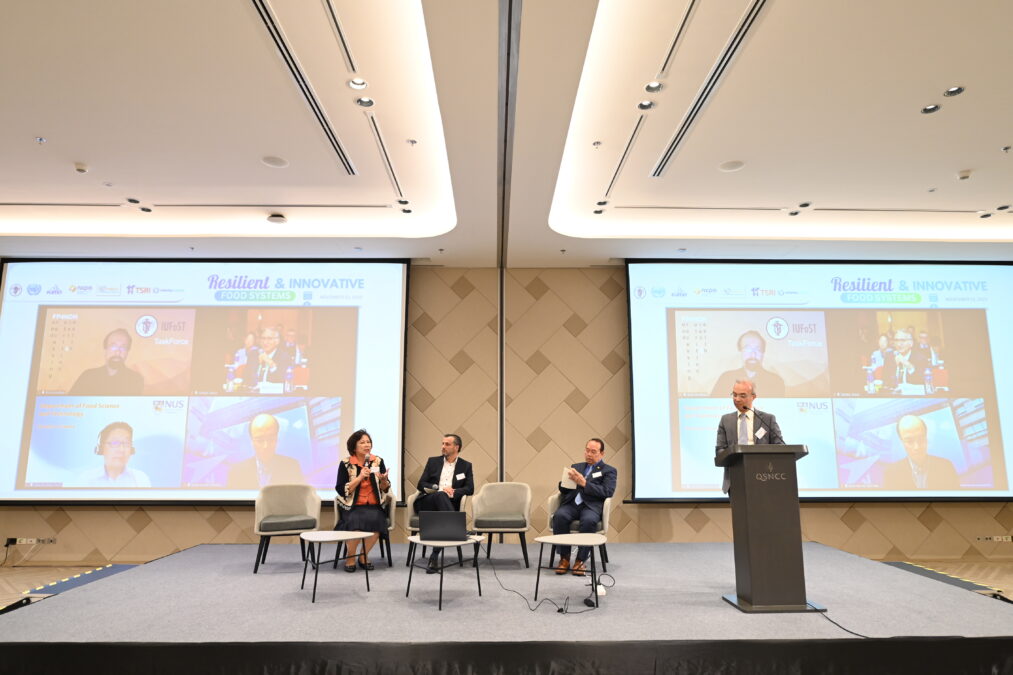
“Right now, everyone might understand that Thailand has strong food security because we have an abundance of food. But in reality, we are quite fragile. This can be seen from the living conditions and financial status of those who produce food for us, such as farmers. These people are financially very poor, which means they are very vulnerable. If anything happens, they will be the first group to fall. What we see now as abundant is because we have many people whose lives depend on this business, but they rely more on physical labor than technology. Over 50% of the Thai population is involved in agriculture and food production, which also means that 50% of our country’s people are low-income and vulnerable. Without technological assistance, they will surely struggle. Therefore, the government must support the introduction of technology and innovation to help farmers, who are food producers at the beginning of the supply chain and are very vulnerable. What we discussed today includes many interesting technologies that can be applied to our farmers, such as growing duckweed eggs and insect protein. If these can be cultivated hygienically, they will be of good quality, can enter the market at a good price, and increase farmers’ income and knowledge. Additionally, the PMUC is now looking at the marine fishery sector, as there are often concerns that massive sea fishing destroys marine ecosystems. We are therefore trying to find technologies for aquaculture and innovative fish food to increase omega-3 levels in fish so that we can raise aquatic animals with high omega-3 content. This will allow the general public to buy and eat at affordable prices without having to fish in the sea to get high omega-3 fish, which will help preserve the marine ecosystem sustainably,” concluded Prof. Pavinee.
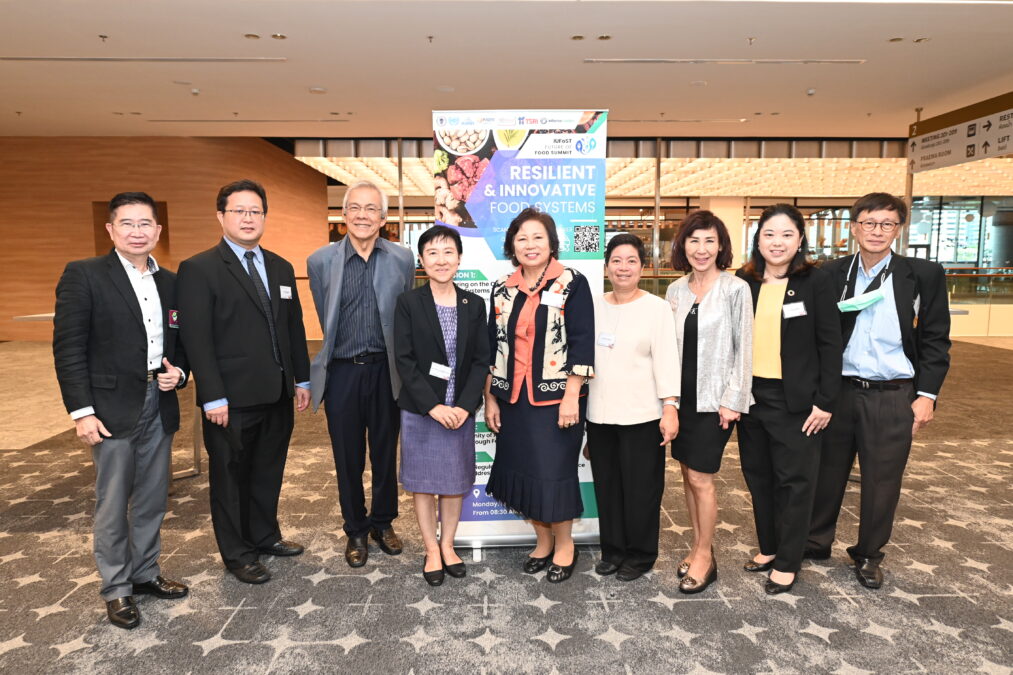
During the discussion, the concept of managing food waste to create resilience and innovation was mentioned. For example, leftover food waste from factories, such as rambutan peels, mangosteen peels, durian peels, and pineapple peels, needs to be addressed after the food production process. One way to manage this waste is to use it as feed for insects raised by farmers for insect protein, as insects can consume all these materials. This method can help reduce food waste and is also a low carbon approach, promoting the bio-circular green economy. Similarly, the cultivation of Water Meal is beneficial because all parts of it can be consumed, resulting in zero food waste.
For these ideas to reach startup entrepreneurs and new-generation farmers, significant government support is necessary. We need to push proven laboratory technologies to the pilot scale, which is the actual operational level, and test them again in conjunction with FDA regulations to ensure safety. Approval to release products to consumers would require considerable government support, as the efforts of startups alone may not suffice due to the substantial investment needed. Thus, creating an entire system would be challenging without such support. Therefore, government agencies like the PMUC must step in to support this initiative by collaborating with various related sectors to establish an ecosystem that allows entrepreneurs to progress.
In its role as a key player driving the food system in Thailand, PMUC has promoted international cooperation by jointly considering solutions to problems in the agricultural production process from upstream to downstream. This includes food processing, sustainable food system management throughout the production chain, and advocating for regulatory and policy advancements. These efforts aim to help entrepreneurs develop certified food products that can enter the market, while also raising awareness across all sectors to support Thailand’s future food initiatives.
